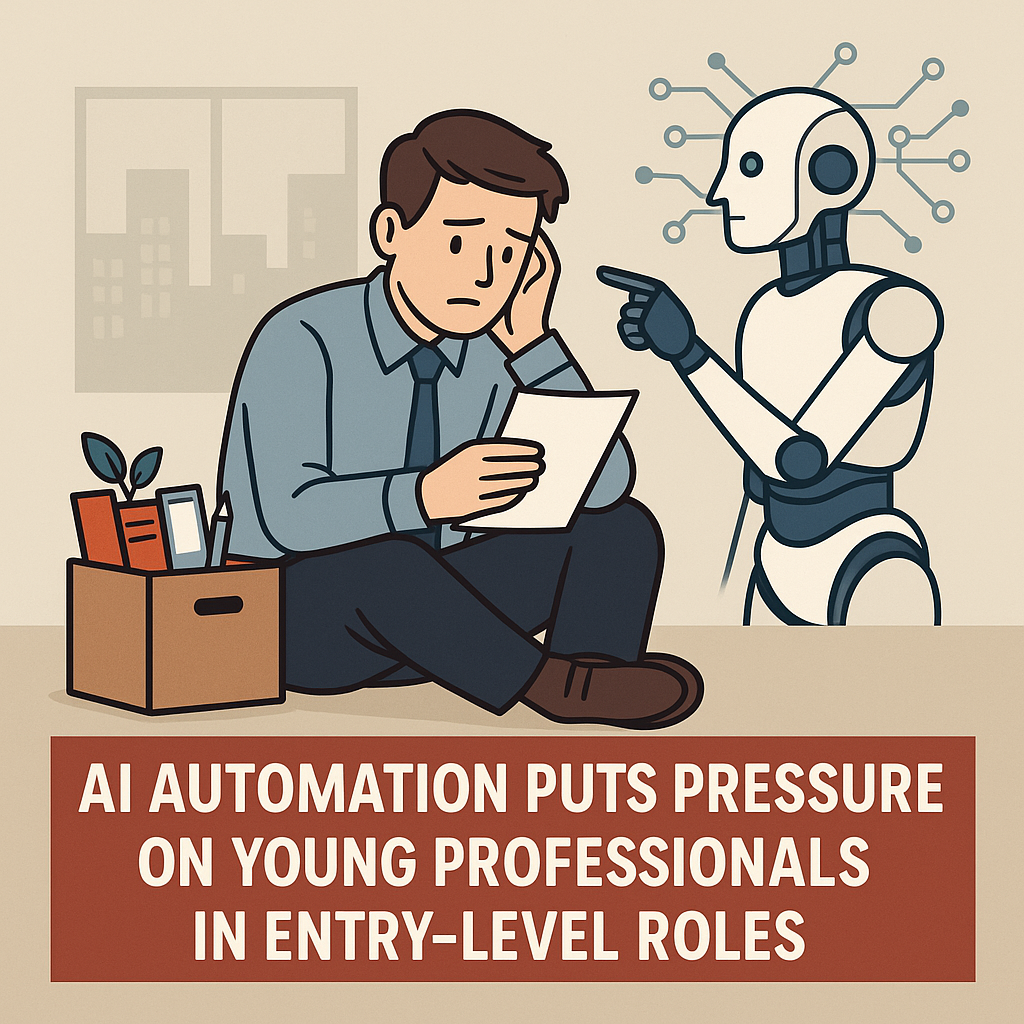
AI Automation Puts Pressure on Young Professionals in Entry-Level Roles
Artificial Intelligence is no longer just a futuristic idea—it is reshaping the job market in very real ways. One of the groups feeling this shift the most are young professionals, especially those just beginning their careers in technology and routine office jobs.
Entry-Level Opportunities Shrinking
Recent labor market studies show that employment opportunities for workers aged 22 to 25 in AI-exposed fields have declined sharply since late 2022. Positions such as junior software developers, customer service representatives, and administrative assistants are seeing fewer openings. In some technical roles, entry-level hiring has dropped by nearly one-fifth, highlighting how automation is quickly taking over repetitive or support tasks.
This downturn appears to be driven less by general economic factors—like inflation or hiring freezes—and more by companies’ growing reliance on AI systems that can now handle basic programming, document processing, or routine customer interactions. As a result, organizations are retaining or even expanding roles for mid-level and senior employees, while scaling back on entry-level hiring.
Why Young Workers Are Hit Hardest
Traditionally, fresh graduates rely on junior roles to build experience and progress in their careers. But as automation takes over those very responsibilities, many young professionals are finding it harder to secure their first foothold in the workforce. Instead of assisting human teams, AI is increasingly being deployed to replace them in the most repetitive tasks.
Not All Fields Are Affected Equally
Interestingly, the impact of AI is uneven. Jobs that depend heavily on human judgment, empathy, or physical presence—such as healthcare roles like nursing—have continued to grow across all age groups. This contrast underscores how automation mainly threatens roles where tasks can be codified, digitized, and scaled by machine intelligence.
What the Future Could Hold
The long-term picture is still evolving. On one hand, AI adoption may create entirely new categories of work—such as AI operations, oversight, and ethics—while boosting productivity across industries. On the other hand, the short-term disruption is most visible at the bottom rung of the career ladder, leaving younger professionals uncertain about their prospects.
For students and job seekers entering the workforce today, the lesson is clear: adaptability is critical. Skills in problem-solving, creativity, data interpretation, and cross-disciplinary knowledge are becoming far more valuable than routine technical tasks that machines can already perform.
Final Thoughts
AI is reshaping the labor market faster than many expected, and young workers are at the front line of this change. While opportunities are shrinking in some entry-level roles, new paths are opening for those willing to evolve their skills and move toward areas where human capability remains irreplaceable.


